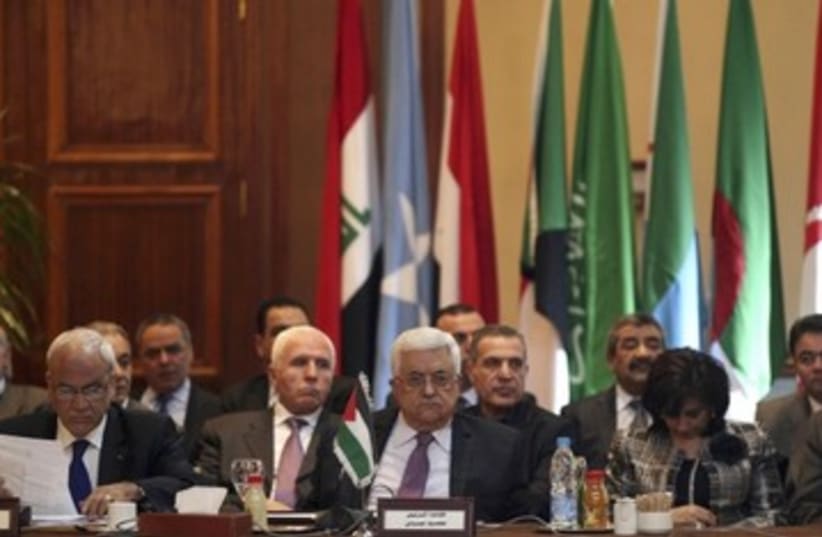Abbas: If Israel rejects our terms, we'll head back to UN
Palestinian Authority President Abbas threatens to return to UN Security Council, General Assembly for state recognition if J'lem doesn't agree to pre-'67 borders, halting settlement activity.
